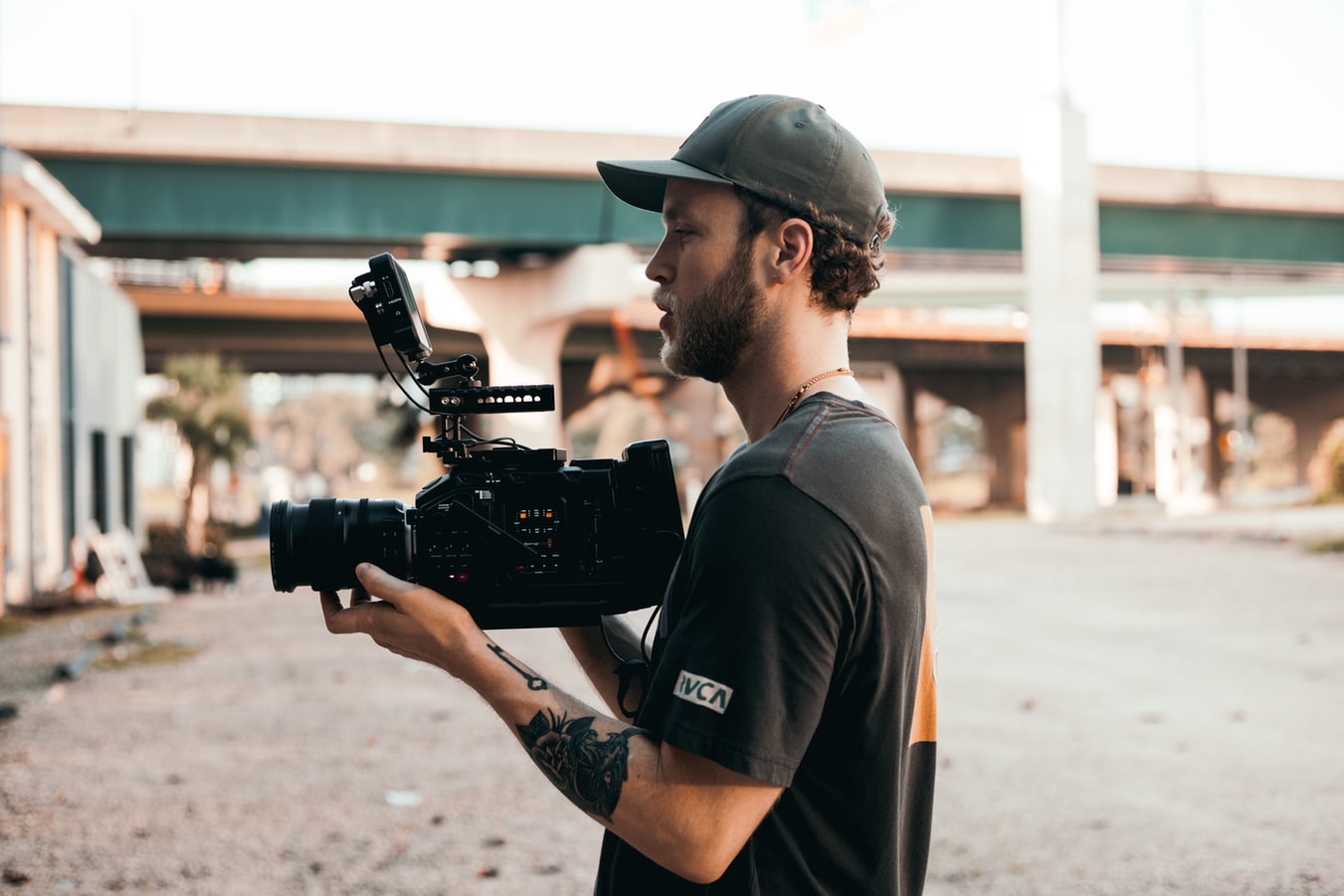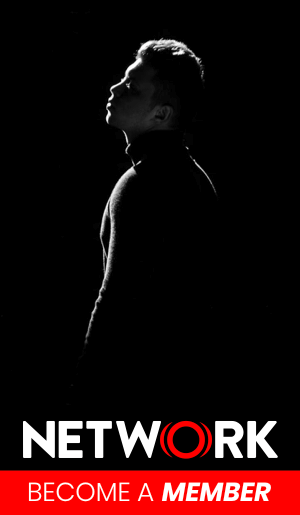
© KAL VISUALS
All many professionals want when they're working in the film industry is to make a living. It seems that the pandemic has resulted in a lack of bravery when it comes to filmmaking. And this means that it's pushing a lot of fantastically creative people away from creative industries. Some people can't work in the film industry for whatever reason, whether it's due to family commitments, or they've just grown tired of the industry, but there are ways to utilize your skills in other ways away from the film industry.
You can either go down the freelance route, or you can start a production company. While there's not a huge amount of difference between these two options, where they do differ is in regards to scale and capability. A production company will have greater resources and a variety of partnerships. Remember, freelancers can choose to work with smaller clients. So let’s show you exactly what it takes to succeed in the freelance world of filmmaking in the real world.
The massive demand for video content
The demand has skyrocketed over the last decade. So many video production companies have needed to bring on more freelancers. There is plenty of work out there for filmmakers because video is something that's not going away. But it's important to remember that while there is more work, there are a lot more people out there looking for work. DSLR cameras are cheaper than ever, and there are incredibly useful filmmaking apps and tools that have made the barrier to filmmaking easier. So this means that while there is more work every single year, it may feel like there is more competition. So what does it take to make a living in this industry effectively?
It's not just about being a good filmmaker
The most important lesson in being a freelancer, whether you are a camera operator, writer, or even an actor, you have to remember that this is a business. Therefore, you have to have the know-how to find clients, pitch services to them, and seal the deal. And this is where running your own production company can be invaluable because you have to learn the skills or get left behind.
One of the big mistakes many filmmakers make is that they think that a showreel is more than enough to showcase their skills. The reality is that there are hundreds upon hundreds of showreels out there. It's important to put 110% effort into your showreel, but this is where learning how to sell this product is going to help you. This means you've got to go beyond social media posts and thinking that clients will come to you. You've got to go down the marketing route and understand what your commodities are. Do you know what your unique selling point is?
Finding your clients
You may have worked on a number of jobs where the director is a tyrant and it puts you off ever going back, and this is a very worthwhile lesson in branching out by yourself. Doing client work is a wonderful way to earn a living being a videographer or filmmaker, and the most important thing when it comes to finding the right clients is to make them happy, which means having a good relationship with them.
When you find the right clients, you have to remember that it's not just about working with big businesses or marketing agencies, the right client can be someone you hadn't expected. Many filmmakers develop a very lucrative side hustle videoing weddings. It's definitely something to consider, even if you initially thought that you would never go down this route because you are compromising your artistic integrity. The reality is that everyone has to find a way to earn a living, and when we earn a living in being creative, even if it's not necessarily what we envisioned at the outset, it is being creative nonetheless!
Diversifying your skillset
The freelance way of life is not just about one path. And it is so important to develop the skills alongside your main skill. Being a freelance filmmaker means that you may be well adept in cinematography, but if there is no demand for your Denis Villeneuve-esque ambitions right now, you have to diversify. The great thing is that being a filmmaker means that you can diversify into other areas.
Going back to the idea of videoing weddings or events, you can offer a full package rate, which allows you control over the entire process, from the pre-production all the way through to the end of the edit. There's a lot to consider, and it is a great way to be creative in ways that you have not considered.
You can also consider diversifying beyond the camera. There is a big demand for actors who are doing a lot of self-taping auditions. They also are looking to have people film their showreels. There is so much potential out there, that you can easily diversify, as long as you get the right mindset in place. It is not financially feasible to make purely experimental artistic movies anymore. This is why George Clooney did coffee adverts in order to fund The Ides of March. There's got to be that balance and this means that we can learn to diversify our skill sets, and will help keep us financially afloat.
Addressing your inability to compromise
We all started out with the greatest ambitions and told ourselves that we would never compromise our integrity when it came to creativity. But it is something that may be impossible to achieve right now. And you can fund your creative endeavors with more mainstream work, but you still need to tell yourself that you are doing work that you may not potentially like for a better purpose. Freelance photographers take family photos, and it allows them the freedom to be creative in the ways that they really want. But in order to achieve it, you've got to get over your inability to compromise.
So many people think that being a freelance filmmaker is to do with artistic endeavors. It can be, especially if you feel that you want to only work on things you're passionate about, but in this case, you've got to take the rough with the smooth and work other jobs outside of the industry. Some people cannot bear the idea of working a regular job, but you can be a corporate videographer, or you can work with people that are looking for something different but in a more conventional setting.
Developing a different work ethic
When we work with clients, we have to remember that they don't necessarily care about our equipment and what makes us “unique” as a filmmaker, because they are all about improving the bottom line. And this is something that we've got to remember, especially if we come from film school, and have a background in experimental art house. And when we feel that we've got to put our creativity first, this can hinder our ability to deliver a product. Amazingly, what can set us apart from the many freelancers out there is just to deliver the work on budget and on time. It sounds so simple, but many freelancers are not good at doing this.
We have to develop a different work ethic, and those who have been on big-budget productions already know the value of how much money can be wasted in an hour because of technical hold-ups. When you are working by yourself, you are responsible for these things, and when you look at it from a different lens, metaphorically speaking, you may have to work smarter to bring projects in on time.
Do not neglect soft skills
Filmmakers communicate through their cameras, and as pure as this sounds, it's not viable if we just want to be a freelance filmmaker. Soft skills are crucial; these are skills like problem-solving, time management, and communicating better. Yes, these things may appear boring, but they are so important to help us build relationships with clients. This is especially true if you are considering setting up a production company.
Many people make the mistake of setting up a production company because it allows them the notion of artistic freedom. But a production company is a business, and this means you've got to bow to the needs of the client because they have specific demands, but it's not just about the final products. Of course, if you have an amazing creative skill, this is fantastic and will result in a great final product, but you've got to have the acumen to go alongside it.
Creative careers, whether it is acting or filmmaking, are struggling in light of the pandemic, but if you want to be a freelance creative in the thing you've trained in and the thing you love, as amazing as it would be to work with the next Fellini for the rest of our lives, we've got to quote Ben Affleck in Jay and Silent Bob Strikes Back: “You gotta do the safe picture. Then you can do the art picture.” And this is something that we all need to remind ourselves of on occasion.



















